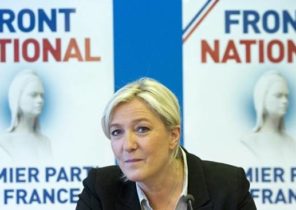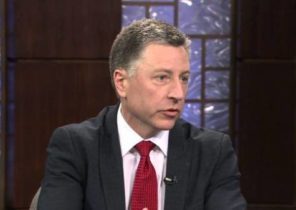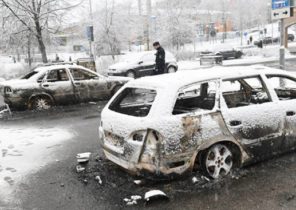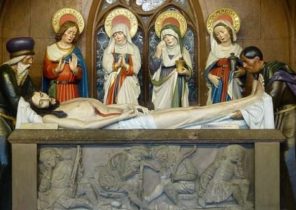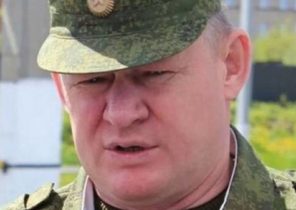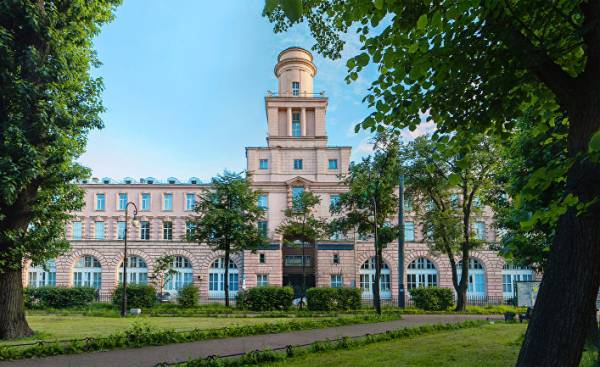
Saint-Petersburg national research University of information technologies, mechanics and optics computer science prepares young geniuses who dominate the most prestigious international competitions. Another example of how Russia, despite a chronic shortage of funds and lower wages compared to other countries, seeking to return to the leaders of the global research race.
“We all know that Melania is the wife of Donald trump. But assistants who are engaged in its pages in social networks, just blanks!”, — said the Professor of computer science Andrey Filchenkov from St. Petersburg University ITMO. This confidence is based on an algorithm that was developed by staff together with specialists from the NUS: it enables you to determine whether a person is married, based on his behavior in social networks (the connection time, average message size, character, sent photos, etc.). Accurate predictions for 86% of the program confirmed that Barack Obama is married, however, considered that Donald trump is behaving like a bachelor, judging by his pages on Twitter, Instagram and Foursquare (for recommendations of things to do near you). This story testifies to the creativity of some Russian scientists and their quest to modernize science in the country. Their goal is to distract young professionals from thinking to move to other States where salaries are higher, and for research allocate more money.
Three floors above the Museum of optics, where three-dimensional reproduction of Lenin adjacent to the R2D2 of “Star wars”, is the Assembly hall of the ITMO boasts an impressive molding, which recalls a long history founded in 1900 under the Romanovs of the University. But now he chose a different course of development. If in 1900 the Institute was engaged in mechanics and optics, today it aims for a breakthrough in computer science.
Internationally, the University ranks only 56th place in the global ranking information technology universities Times Higher Education. Whatever it was, 2000 years his students over and over again to succeed at the annual programming contest of the American Association for Computing Machinery. International student Olympiad on programming (International Collegiate Programming Contest) sponsored by IBM and held since 1977. It involves teams of three students from one University, which should solve a maximum of Informatics tasks in five hours using one computer. “Only our University has won six times” — does not hide the pride lecturer in computer technology Lidia Perovskaya. Former Institute of optics demonstrates better results than mit, Stanford, Harvard and the University of California! The last time the Americans won in 1997. Since then, the University often shares the first place with three other Russian universities (MSU, MIPT and St. Petersburg state University).
What is the secret of success? “We have the best students!” — says an employee of the Department of computer technology Vladimir Ulyantsev. “The conclusion is a bit hasty,” said the coach of the University teams Andrey Stankevich, who himself won the gold medal in 2001. According to him, the selection is carried out “among high school students, which demonstrates good skills in mathematics and participated in Olympiads on Informatics in all regions of the country. The best wards attract the best teachers and professionals who agree to share the knowledge.” According to Stankevich, the education system in Russia has always been strong and well structured.
In addition, the students have financial interest. And this applies not even a prize for medals: 7 thousand 500 dollars for a gold medal and for the team, 15 thousand — for the world champion. Participation in Russian competitions in programming, with their high requirements, “gives the students the opportunity to enter the University without competition and free to learn that each year attracts more and more disciples.” Depending on the results, 80% of Russian students study for free, but the rest 20% have to pay (from 1.9 thousand to 3.2 thousand euros per year). Computer science is given priority, just as in the United States of a football are the best to go to major universities.
The strategic agreement between the University and the Ministry of defense
Finally, participation in the international Olympiad becomes an important line in the summary. “Winning brings you a lot of jobs. I still at least once a year call from Google! But I wanted to be a scientist like Egon Spengler from “Ghostbusters,” says 29-year-old Maxim Buzdalov, who won the ICPC in 2009 in Stockholm. Research in the field of artificial intelligence in ITMO became his driving force, and his name and algorithms “mentioned in scientific publications”. 25-year-old Niyaz Nigmatullin, one of the winners of 2012, two years ago I went to work “Vkontakte” part-time. It allows him to “find out what technology is used in the real world, and what is good only in theory.”
In addition to the “motivation” they had “support trainer”, which gave them personalized lessons, conducted training twice a week and has arranged training camps for ten days two or three times a year. The students had to find solutions for the problems from old contests like “Find the shortest path from one city to another with specified stops or What wells to drill, with projected oil prices?” In addition, they are pushing to participate in other competitions like Google Code Jam and Facebook Hacker Cup.
In addition, ICPC gives the University national recognition. After the fifth victory in 2013, “we have signed a strategic agreement with defense Minister Sergei Shoigu,” — says the rector ITMO Vladimir Vasiliev. It provides “software development, including aircraft, as well as the creation of electronic equipment and preparation of experts of the Ministry of defense”. He did not specify whether the government hackers. Anyway, the University was able to attract the best computer talents from across the country and to get a loan for a new discipline.
So, in 2014, the University also decided to create a new laboratory of applied chemistry. “Were allocated state funds program 5-100 Russian Academy of Sciences”, — says economist Nina Yanykina, which is responsible for projects and the Department of innovation. He contributed to the formation of 48 companies, which can help to raise additional funds. Despite all this, the only startup that deals with quantum encryption communication, yet managed to attract modest sums from private investors.
The University was established a modern laboratory, which is managed by a young chemist Vladimir Vinogradov. It promoted to the post of Professor at the Hebrew University in Jerusalem, David AVNIR, who took him under his wing in 2011, and then went to Russia to support his candidacy to head the new laboratory. Three years later, “we have applied for a dozen patents, including a magnetic method of combating thrombosis,” says Vinogradov. Funding by government is adding support for 14 companies for applied research. Together with his Israeli mentor, they are published in prestigious scientific journals, and David AVNIR the lab considers “one of the best in the world.” “Russia has many talented students, — adds Vladimir Vinogradov. In the past, most decided to leave the country. Now we can select and retain the best”.
Whatever it was allocated for the laboratory means are part of a wider political scheme. The program 5-100 wounds was approved by Vladimir Putin. For Russia the battle for science is in full swing.
